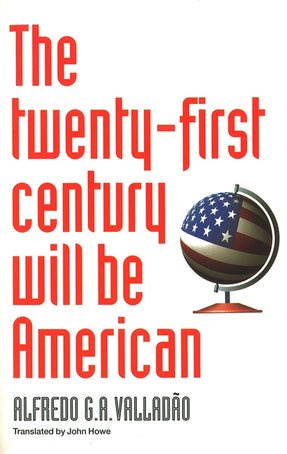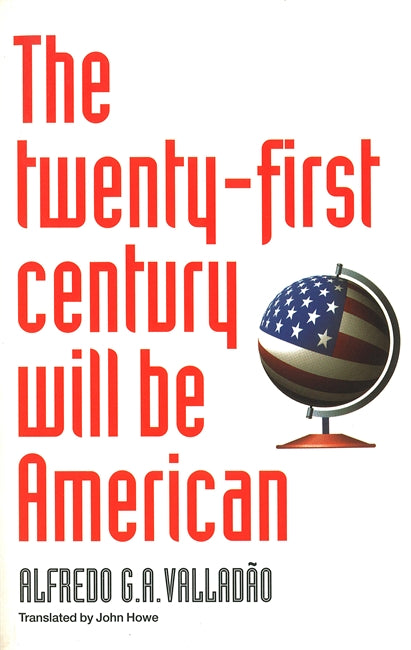
The Twenty-First Century Will Be American
-
30% offRegular price
$17.00Sale price $11.90Add to cart
Countering the perception of the United States as a country in decline, this book argues that America will dominate the 21st century, as it alone has the will and the means to do so. It traces American history from the proclamation of independence to the present day.
Allegations that America is in decline have become commonplace in the years since the Cold War ended in victory for the United States: Washington, it is said, is doomed to founder in decadence, like an imperial Rome collapsing under the weight of its armies. This thesis is energetically refuted by Alfredo Valladao. America, he believes, will dominate the twenty-first century because it alone has the means – and the will – to do so. It alone possesses the three qualities needed for supreme power: unequalled military force, the biggest and most dynamic economy on the planet, and a culture with universal ambitions. The author traces the course of history from the proclamation of Independence to the present-day metamorphosis into World-America. The prophets of decline, argues Valladao, are a century or two adrift: if a historical analogy must be made, it should be with Rome in triumph after its total victory over Carthage—the Roman Republic pregnant with an empire.
Reviews
An imaginative, iconoclastic, persuasive and very perceptive assessment both of America itself and of america’s unique global role.
For Americans, viewing their history through Valladao’s Brazilian lens may prove particularly enlightening, offering a new perspective on familiar events. Whether your interest is business or politics, add this one to your library.
One might expect a Brazilian living in Paris to treat ‘the great mutation’ with a certain reserved scepticism. Not so. Valladao is optimistic about the ability of the empire, if properly managed, to win the consent of the peoples making up ‘the federation for free nations’. This imaginative and thought-provoking study is well worth attention.
-
This striking, original, and thoughtful essay on the changing nature of America’s global dominance is something of a landmark on the long pilgrimage of the New Left towards accepting, understanding, and finally appreciating the country they once patronised and despised.
The Tribune
